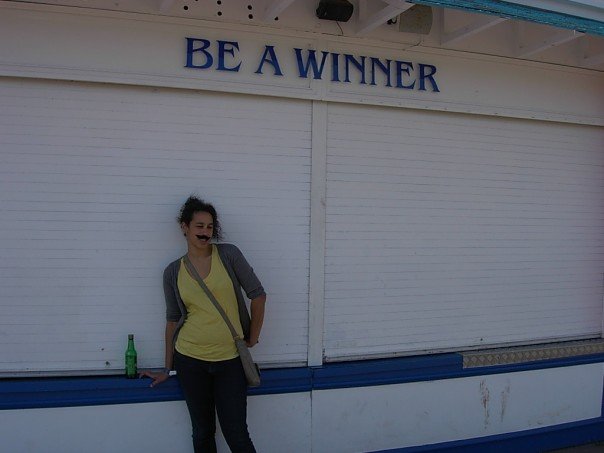Berlin
I meet a man who I think at the time is the handsomest man in the world, in a horrible club where they light sparklers every time someone orders champagne. We make out in the door of a florist's shop in Mayfair. Things go a bit far. A man interrupts us and wants to know, can we give him change for the payphone? Perhaps he mistakes our guilty looks for fear. "I'm not a Muslim, I'm a Hindu," he says, eager to please.I tell the handsomest man in the world I want to move to Berlin and finish the book I'm writing. "Like David Bowie," he says. For no reason at all, I start to cry. I think I'm crying because I am still in love with my ex boyfriend, but really I'm crying because we're not going to have a baby, and I'm not going to move to Berlin, though I don't know these things yet.
Months later, after I've not had a baby, I go to Berlin to welcome in the new year and watch the people who live in the city narrowly avoid setting fire to each other, with fireworks. It's late December - the year feels old, draggy, heavy in the hips, it doesn't want to go on. Almost everyone I'm with is Danish. The woman who owns the flat is Swiss, but she isn't here. We piece her together from fragments. In a moment of revelation, I realise that the emergency landing instructions next to the toilet might be the sign of an air hostess, not a chronically anxious phobic.
On new year's eve we end up at a cavernous gay club where men have real live sex in dark rooms at the back. My friend wants to take a look, so we do, and I pretend not to be shocked. Later on we get separated and in an upstairs bar I see a man in glasses unwrap a packet of sandwiches he's brought with him and eat them, like an explorer halfway up a mountain, halfway through the long trek of the night.
I think Berlin is like London. Everywhere is like London, after a while, after you've been in London for a while. It has the same mixture of drabness and fierceness, but the streets are wider from where the armies marched through.

